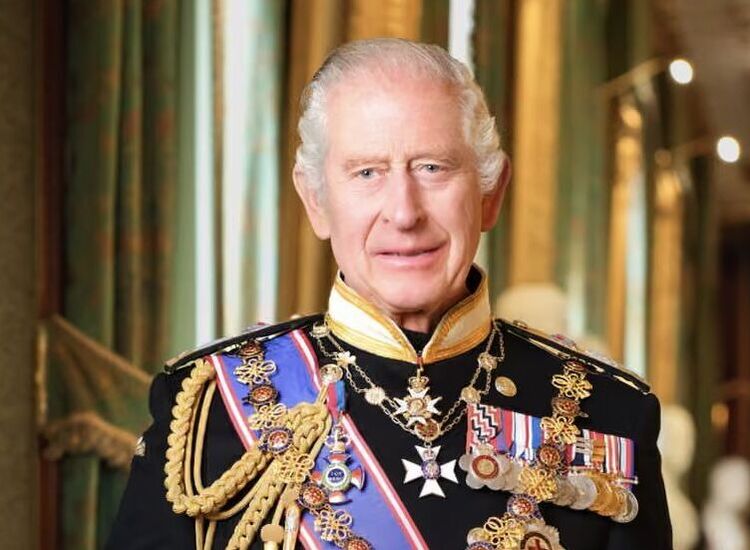Aidan Connolly and John Daly.
By Daniel Neely
The December rush continues, folks! And if you have a moment, keep these couple of things in mind as you go about your week.
First thing is cool video I saw recently by the Dundalk-based group the Mary Wallopers in which they sing the Hamish Imlach song “Cod Liver Oil and the Orange Juice.” Shot in a pub all dolled up for Christmas, the song tells your typically maaad boy-meets-girl story in a most charming of ways, enhanced by a nostalgic early 1980s RTÉ TV video aesthetic. Its humor is subtle but well played and worth checking out.
https://youtu.be/ERFfHLS4z_k
The song itself is taken from the group’s recent EP “A Mouthful of The Mary Wallopers,” which is really worth hearing and can be found on Bandcamp, marywallopers.bandcamp.com. The material they’ve selected is uniformly interesting and they deliver it with a bit of a misfit Clancy Brothers/Dubliners vibe. Apparently, there’s a full length album in their future, which I really look forward to hearing. (Fun fact? This isn’t the only song the group sings that has “Cod Liver Oil” in its title. But how many are there?)
Then there’s Aidan Connolly and John Daly’s new one, “Away Up On The Road,” which I’ve had in the player all week. Connolly and Daly are fiddle players of wide renown and this lovely collaboration explores the music shared by a pair who, although separated by a generation, have drawn from a largely shared array of stylistic wells. The results are engaging and will reward those who take a close listen.
Many readers will know Daly and his music. Born in County Cork and now living in Limerick, he was a longtime resident of Chicago, where he led a popular session at the Abbey pub. Over the years, he made connections with musicians all over the US. Rooted in the music of Sliabh Luachra, he is a prolific composer who also takes a special interest in the music of Cape Breton and Shetland.
Connolly, whose solo debut I wrote of here in 2017, grew up in Dublin, but was drawn to the music of Sliabh Luachra early on. Connolly’s mother, like Daly’s father, called Gneeveguilla, Co. Kerry, home, a circumstance that led him to search down and really study musicians of the area, including Paddy Cronin. These days, Connolly lives in Valencia, Spain, where he spends his time on “outlandish nonsense such as transposing tunes to recalcitrant keys,” but he remains active and returns to Ireland frequently to perform and teach.
The music here is an interesting juxtaposition of playing styles It’s something Daly in fact alludes to in the liner notes, writing “Aidan and I enjoy a great deal of the same music but we play it quite distinctly from one another. We’ve been inspired by many of the same musicians too, but have taken very different things from each one.” How this manifests is clearly evident on this album, especially if you listen to the solo features and then the duet tracks. In the end, it all works quite well – the music this pair makes is filled with lift and flow, with its success based in how well the two musicians plays off each othe
Daly’s features are all quite rich, with the reels “Paddy Fahey’s No. 1 / James ‘Lad’ O’Beirne’s” (his sources for these being local favorites Annmarie Acosta and Brian Conway), the jigs “Chicago Abbey / Trip to Galway / Plains of Mayo,” and “Fetlar Lullaby/Fairies of Tiveragh,” a Shetland slow air followed by a hornpipe by Jim McKillop being particularly attractive. His playing on each of these is warm and imaginative with a looseness that speaks to his decades-long experience.
https://youtu.be/PXLOUBR9b04
Compare these to Connolly’s approach on the marches “The Brave Soldier Boy/Come You Not From Newcastle” or the hornpipes “The Land Lubber/Quarrelsome Piper” and you really do hear the difference Daly referred to. Both are brilliant tracks, but they reveal a musician whose virtuosic strength lies both in his smart rhythmic sensibility and his explosive precision.
Put these two players together on tracks like the reels “Devaney's Goat/Irish American/Morning Dew,” the slides “The Worn Torn Petticoat / Nelly Mahony’s” (which were taken from Johnny Cronin and Joe “Banjo” Burke’s 1977 album on Shanachie), or the polkas “Paddy Cronin’s/John Walsh’s” – each of which is fabulous – and you find voices that seem to be speaking to each other, as if in conversation. You can hear how the two have listened to shared sources with different ears. This isn’t perfect unison playing. What binds the music, I think, is the shared sense of rhythm that allows one to lock into the other’s playing without having to play in perfect alignment.
It’s a fascinating thing to hear, and in a way reminds me of how Len Graham and Brian Ó hAirt articulated with each other on their albums, “In Two Minds” and “The Road Taken.” Although the two sing differently from each other, it was the space between their styles and the energy it created that gave their music life – I hear a similar thing happening here.
Jack Talty, the man behind the great label Raelach Records (which released Connolly’s debut), not only recorded, mixed and mastered this album, provided the album’s piano accompaniment. His contribution here is superb – he undergirds the fiddle music in understated but energetic fashion.
“Away Up On The Road” is an outstanding album that will delight fans of traditional music and catch the ear of the savvy fiddle players out there. Connolly is an astonishingly good young player and has found an excellent foil in Daly – it would be great to be able to catch these two live. Definitely one for the collection! “Away Up On The Road” is available through Connolly’s website, aidanconnollymusic.com.









